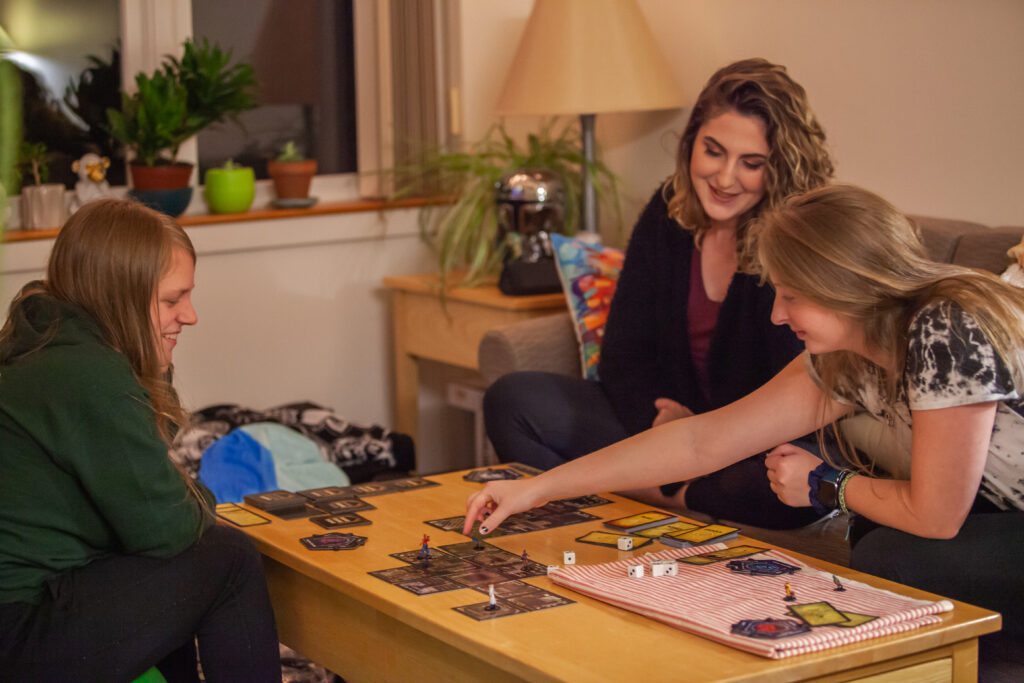
Imagine this: It’s late on a Thursday night and your phone rings. You see that it’s your student calling, and a sense of doom almost immediately sets in. They’re calling? It seems the only way they’ve communicated with you over the past year and a half is via text. There must be an emergency!
Worriedly, you answer the call. On the other end, you hear sniffles and a shaky voice reporting that they’re miserable and “just want to come home.”
What to do? Your once wildly independent teenager needs you. If possible, will you hop in the car immediately and drive to Biddeford? Will you tell them to go to class in the morning and then promise to pick them up tomorrow afternoon? As the parent or guardian of a college student, you have several different options. Before you determine how you would handle this scenario, turn your attention to what follows.
Homesickness
Many of us will experience homesickness at some point in our lives. The experience is typically grounded in feelings of longing, or missing what is familiar and comfortable. For our students, that feeling of discomfort can lead to them self-isolating (i.e., staying in their room all day), experiencing difficulty concentrating, or lacking the motivation to get up and go to class. This may further manifest when they endlessly scroll social media, peering into the lives of peers at other schools who seem to be having a great time.
It’s important to remember that as gut-wrenching as it may be to hear your student’s distressed voice, homesickness is a normal manifestation of change. For many of our young people, arriving on a college campus is the first time they’ve ever had to wade into an entirely new environment without you. As toddlers and then school-age children, you likely helped set up some playdates, signed them up for sports, or shepherded them to various activities where they could engage with other children. Without you by their side, some of your students may feel paralyzed by the experience of homesickness. Now before you feed your own worry, please keep reading.
Coaching your student
Before you agree to pick your student up and bring them home, consider that there are things they can start to do immediately to address this challenge. Setting a reliable and consistent routine is chief among the practical things your student can begin to do right now. Set an alarm, go to class, eat lunch at the dining hall, go to the gym or take a walk, and do some homework; you get the picture. As simple as it may sound, routine is a critical factor in their success. Knowing that, you might ask them what their routine looks like. If they don’t have a good answer to the question because they’ve been skipping classes and staying in their room all day, that opens the door for you to engage in some coaching about routine.
Quality sleep is also crucial for students experiencing homesickness. If your student is inclined to nap when they’re feeling lonely, they may not be getting the kind of restorative sleep they need at night. When they nap during the day, they may stay up later, and then when the alarm goes off for their 8 a.m. class, they might decide not to get out of bed because they feel sluggish. Just like that, the day’s routine is interrupted. Remember that good sleep hygiene can make all the difference. Silencing cell phones, eliminating screens in the hour before sleep, and limiting caffeine late in the day can all help.
Talking about homesickness is a fantastic way to take some of the sting out of an inherently isolating feeling. When your student keeps those feelings inside, the despair is allowed to grow. Encouraging your student to talk with their Resident Advisor or a roommate prompts them to confront their homesickness. Perhaps more importantly, it can also open the opportunity to hear from others that they, too, have had this experience. In sharing that vulnerability, they can make a connection with someone else. This is especially meaningful as humans are wired for connection.
Finally, getting involved on campus can help your student respond to their need to connect with peers. UNE boasts over 100 student-led clubs and organizations. The easiest way for them to begin to explore these opportunities, as well as to learn about the many activities taking place, is to download the Presence app. To learn more about the app and how your student can get involved, click on the following link: https://www.une.edu/student-affairs/undergraduate-student-engagement

While it is well understood that hearing your student report to you that they are unhappy is very hard, it should also be a signal for you. Periods of time that are punctuated by change and challenge are natural in the course of our lives. Consider a time when you leaned into an uncomfortable experience and came out on the other end of it feeling empowered and proud. At UNE, we want our students to have that same opportunity. As counterintuitive as it may feel, we can rob them of the chance to experience that pride when what we do first is hop in the car to get them.
Should you get that tearful call, consider an option not provided above: Will you encourage them to take a breath, collect themselves, and then you tell you what’s going on? Following such a conversation you might still make the promise to come pick them up on some future date. By engaging in a conversation first though, you will have helped your student take a profound leap into their future as a self-sufficient adult.

